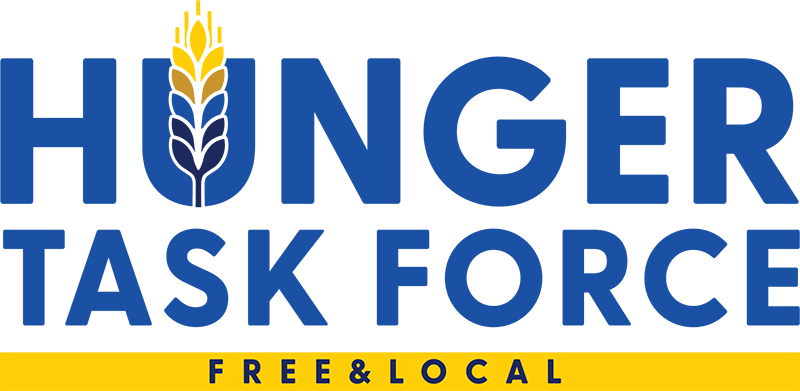Hunger Task Force Heads to Washington D.C. for Anti-Hunger Policy Conference
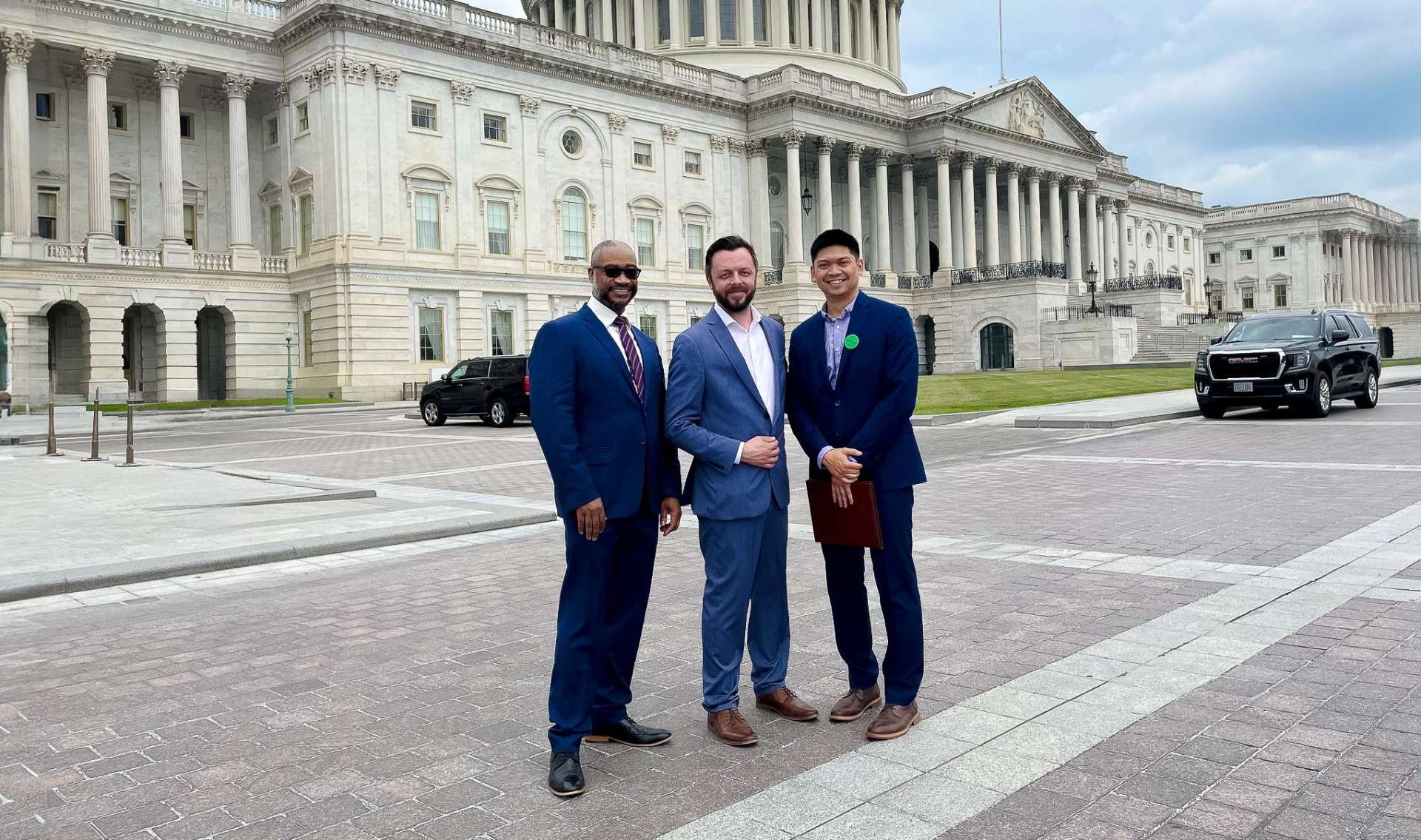
Three members of the Hunger Task Force team attended the Food Research & Action Center’s National Anti-Hunger Policy Conference in Washington, D.C. earlier this month. They joined more than 1,000 anti-hunger advocates as they listened to compelling presentations and attended thought-provoking sessions that addressed the Supplemental Nutrition Assistance Program (SNAP), the Thrifty Food Plan, the Women, Infants and Children (WIC) Program and GusNIP.
Incredibly empowered, our teammates came back with these key takeaways.
Reno Wright, Advocacy Director at Hunger Task Force
- I came back ready to put more energy into our school meals and early childhood initiatives and reinvigorate our local coalitions. We at Hunger Task Force will work to organize a coalition of partners who are interested in ensuring meals are available for all school-aged children in Wisconsin and will increase enrollment in the CACFP program for eligible daycare centers.
- I received more information from experts about different issues impacting various populations that could be addressed within the Farm Bill including the potential impact on military families by removing income received for housing as part of eligibility requirements, gradually transitioning Puerto Rico into SNAP and the potential pitfalls of privatization and outsourcing of the eligibility determination services. The most recent Farm Bill markup that was approved by the House Agriculture Committee, which reinforced the importance for advocates to fight to protect and expand access to federal nutrition programs.
- We do not want a cost neutral Thrifty Food Plan, which already provides the bare minimum benefit to families. Even though there may be adjustments based on inflation, this measure will not allow adjustments based on scientific advancements as we learn more about dietary and nutrition guidelines. It also will not factor in the increasing cost of food in grocery stores. One theme that was reiterated was that no Farm Bill is better than a bad Farm Bill. The long-term implications of a cost-neutral Thrifty Food Plan are too detrimental for vulnerable families who rely on SNAP benefits. It also has implications for other federal nutrition programs.
Brandon Savage, Hunger Relief Federation Manager at Hunger Task Force
- After the expanded definition of “rural” for non-congregate meals for the Summer Food Service Program, in addition to the expansion of Summer EBT, this summer will be great for kids and families seeking nutritious food and pushing back on food insecurity.
- Our Farm Bill priorities align with likeminded organizations, and Hunger Task Force remains in a position to take footing nationally by joining forces with other organizations and pushing for stronger federal policies soon.
- The USDA is very aware of the growing use of artificial intelligence and its application to USDA programs being administered by various state agencies. With programs being severely understaffed, the USDA is working on creating guidelines for its application to ensure that it is not being misused.
- There are substantial changes coming this fall when the final rule is issued for The Emergency Food Assistance Program. These rule changes are being directed by the USDA and will impact the intake process at pantries across the country. Most of the people in attendance were in support of the changes to remove barriers to access nutritious food.
- While procuring culturally relevant food is always a priority, the USDA does have roadblocks for doing so for all communities. The USDA can only procure domestically, so “relevancy for all” will always be an issue.
- There are several language barriers that exist when receiving information from, or attempting to contact, the USDA. Most handouts are in English or Spanish, but other languages, like Hmong or Russian, are not readily available (if at all).
Allen Castillo, FoodShare Outreach Program Manager
- There is an importance in including the community in anti-hunger work. From stories and testimonials to gathering feedback in agency decision making, listening to those who need help or who are helping people firsthand is valuable in any decision making.
- Lobby Day provides an opportunity to speak directly with legislators about what is going on at the ground level and to help remind them that the decisions they make have real effects on their constituents no matter if the decision is big or small.
- It’s important for SNAP to be protected not only in the upcoming Farm Bill, but always as the biggest federal nutrition program and the first line against hunger. SNAP’s purpose should remain focused on reducing food insecurity.
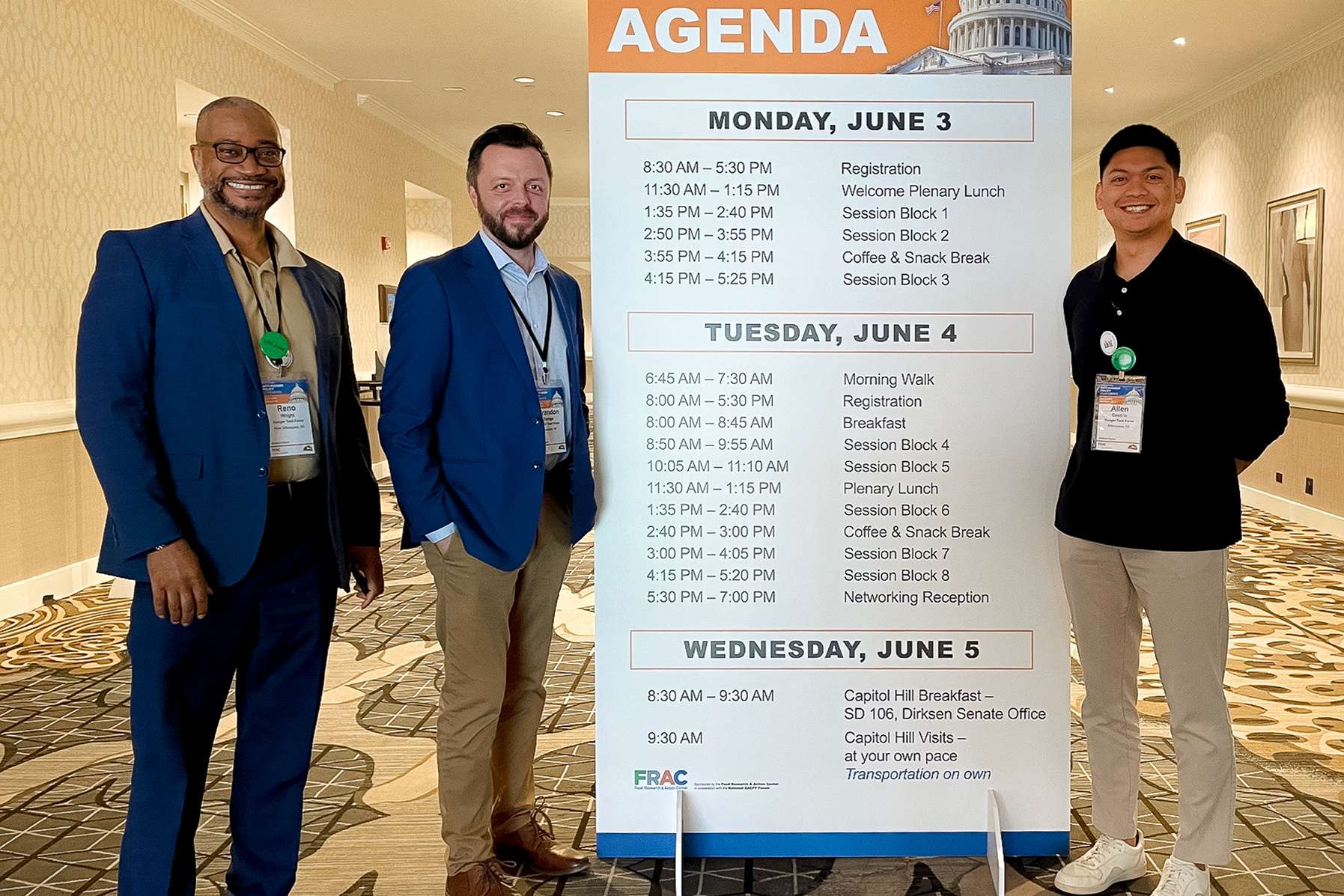
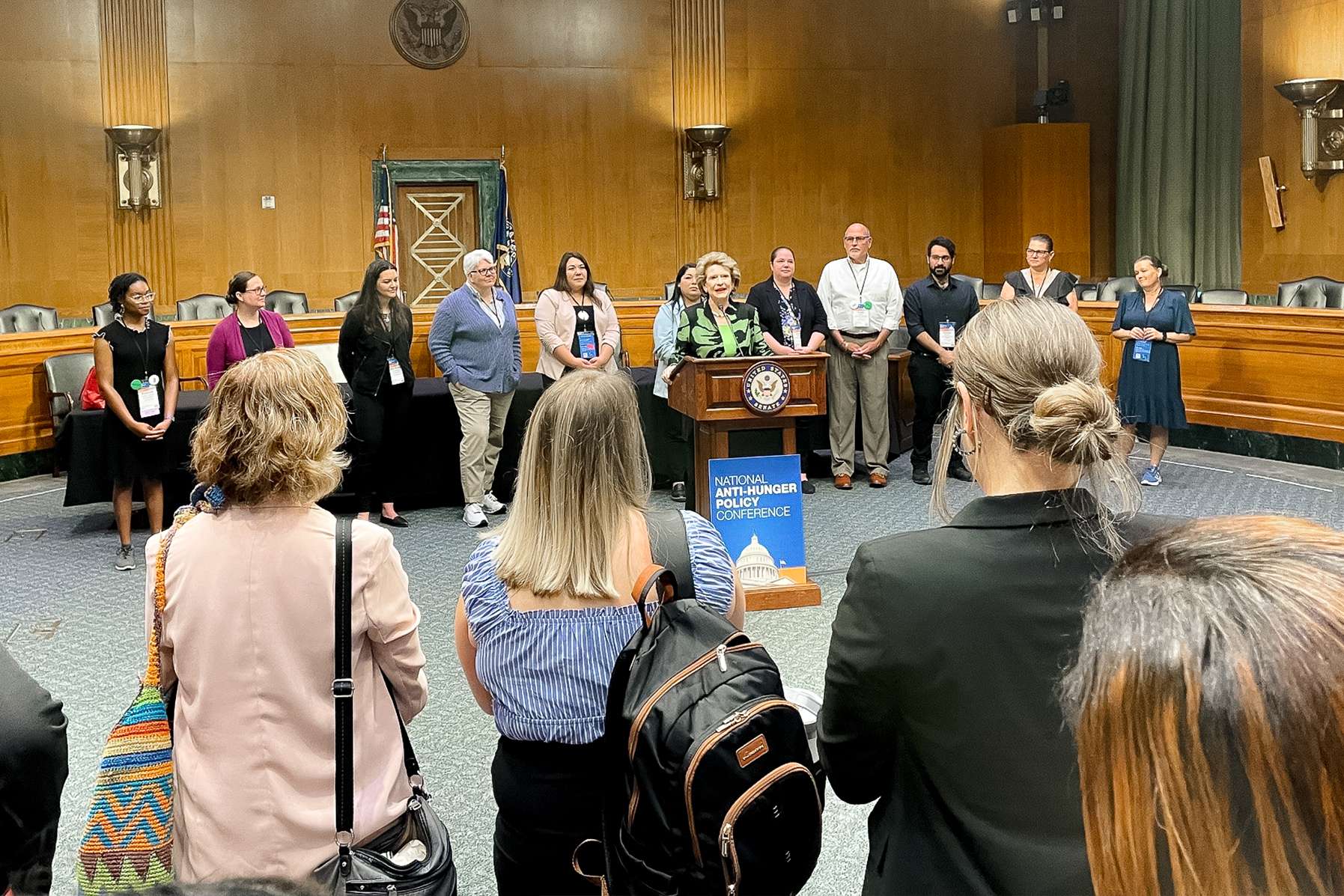
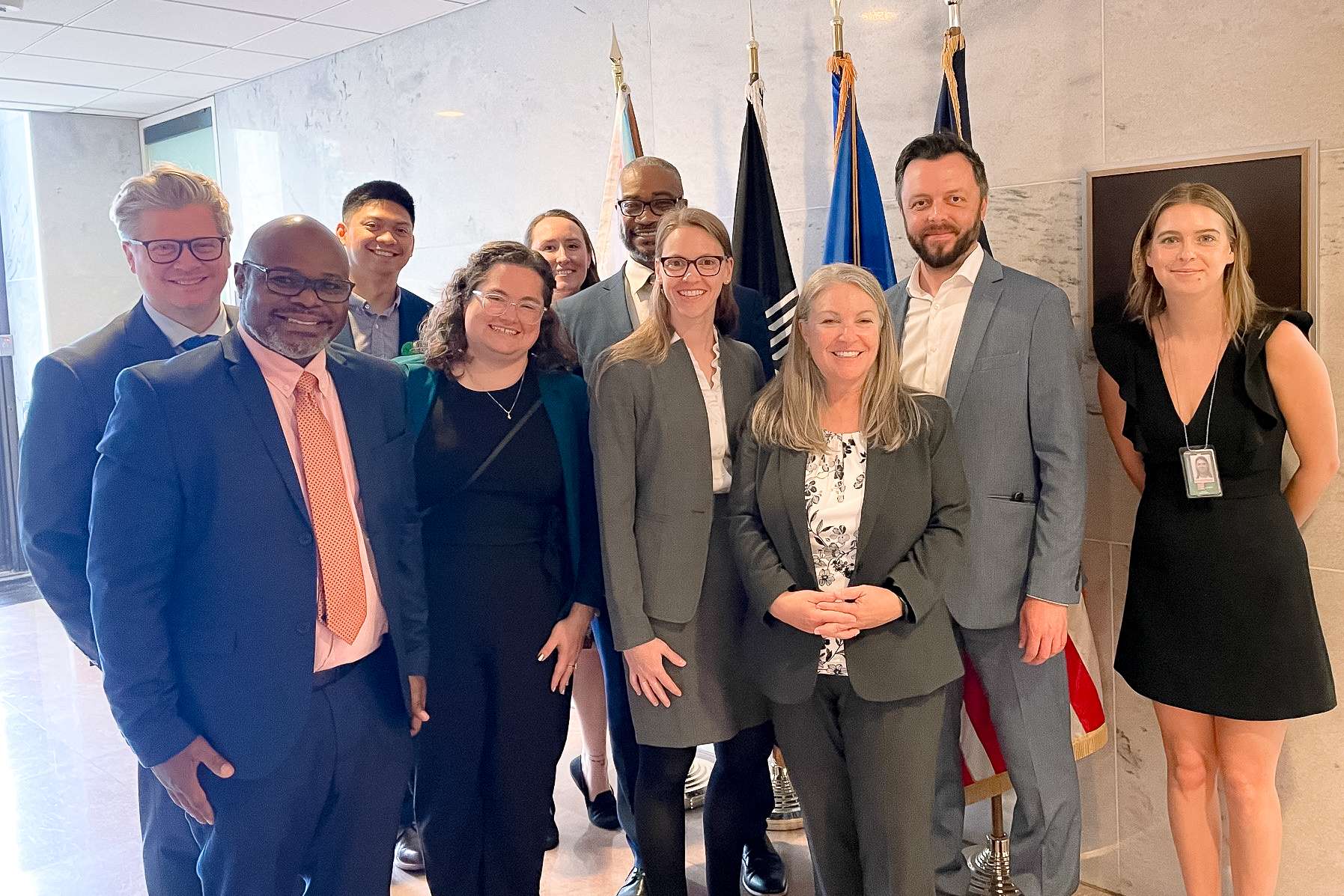
Hunger Task Force is Milwaukee’s Free & Local food bank and Wisconsin’s anti-hunger leader. The organization’s core values are Dignity, Justice, Equity, Compassion and Stewardship. Hunger Task Force feeds people today by providing healthy and culturally appropriate food to hungry children, families and seniors in the community absolutely free of charge. Hunger Task Force also works to end future hunger by advocating for strong public policies and nutrition programs at the local, state and federal level.
